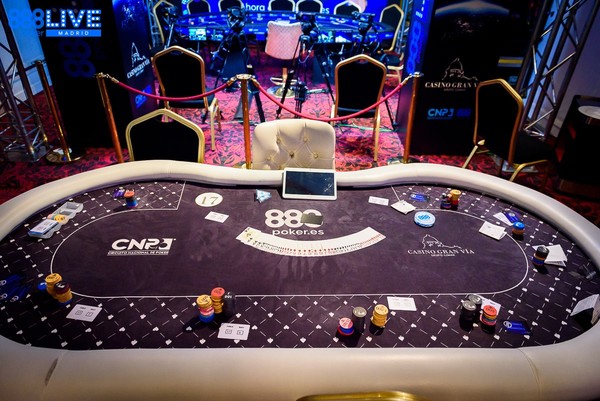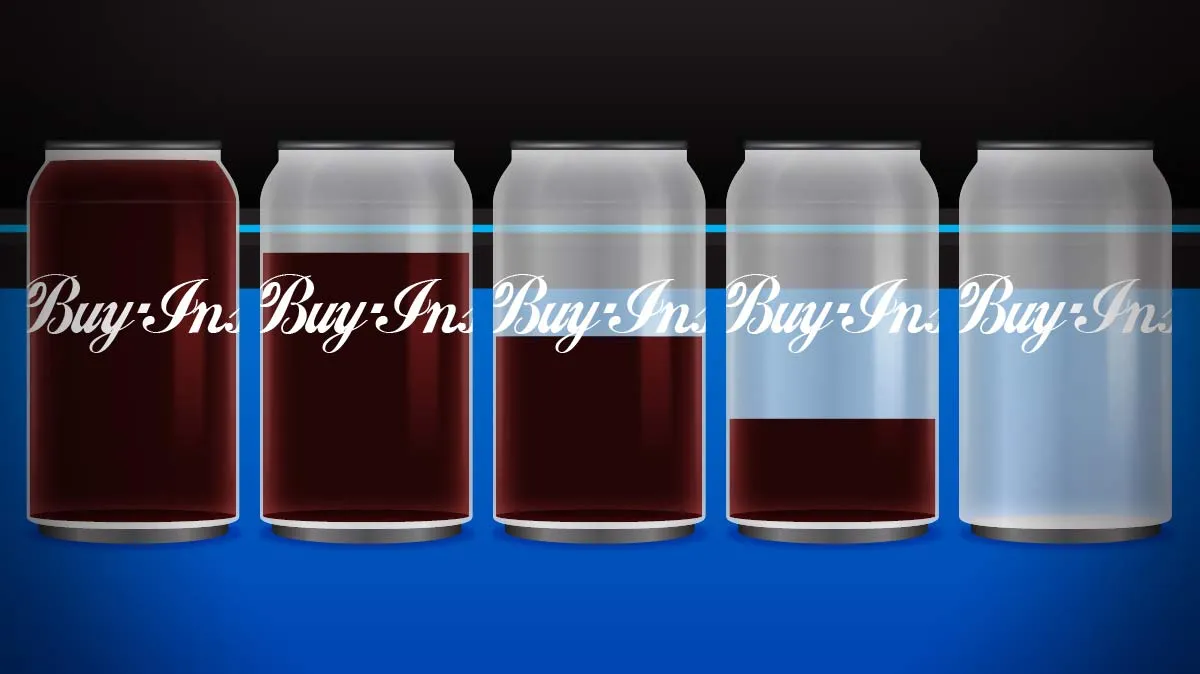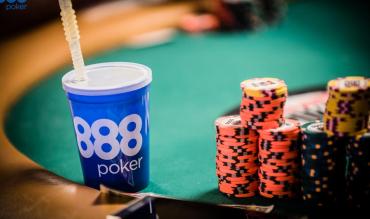To booze or not to booze, that is the question. Every time you sit down to play poker – whether it’s at the casino or at the computer from the comfort of your own home – it’s natural to wonder: Should I crack open a beer?
Today let’s explore with sober eyes the pros and cons of drinking while playing poker. And please, water is advised.
Why Drinking Hurts Your Poker Game
At the risk of sounding like a boring old fuddy-duddy, drinking does impair cognitive functioning. I spoke about this with Dr. Tricia Cardner – a licensed psychotherapist, a former psychology professor, and a multiple poker book author. To her, the answer is unequivocal. Should you drink when playing poker? “NO!” As an expert with advanced medical knowledge, she makes it plain that alcohol muddies our ability to think clearly.
Poker is a skill game. The more skilled players consistently achieve better results, including long-term profitability. So if you drink alcohol while playing, you suppress your skill set and make it more difficult to achieve a sustainable win-rate. Or any win rate.
Which brings us to our next point.
When you are playing against absolute beginners, it doesn’t take that much knowledge in order to have an edge. You can win fairly easily – drunk or not. But as your game improves and you rise through the ranks, poker becomes a game won at the margins. Edges get razor slim. Once you reach elite status, you need to be able to navigate each bet with finesse – every big blind counts. Even every chip.
So for advanced players, there isn’t room to get sloppy. If drinking makes your game as little as 5% worse, that could be the difference between winning and losing.
Think of it this way: having two cards of the same suit only increases your hand’s value by 2-3%. J♣10♣ is only 2-3% better than J-10 of two different suits. But as any poker player knows, “suitedness” is something we take seriously!

If your cards change that drastically just with two or three percentage points, imagine the impact of alcohol. It’s probably at least this significant on your game. A couple of beers and all of sudden you’ve gone from the equity of playing a beautiful K♦10♦ to a raggedy K-10 offsuit.
Do you really want to downgrade your game? Even by just a tad? Because in poker, small adjustments mean big changes. Especially if you someday plan on playing against pros.
Poker is a volume game. Sure, anyone can get lucky every once in a while, but you can't depend on luck over time. Hot streaks cool off; good fortune inevitably runs out. If you are grinding poker on the daily, you need consistency. You also want to do everything in your power to curb variance.
Yes, there will always be some volatility. That's part of the game. But as an aspiring or professional player, your job is to mitigate swings. You want to win by your masterful bluffs and impressive laydowns – not by hitting jackpots. Any two cards can hit gin. Play 7-2 enough and you're bound to make some full houses. But if you play that hand all day, every day, you're asking for a net-negative. You’re asking to go broke!
The problem with drinking is that it may make you more likely to gamble … upping your variance. It's going to make your game more luck-dependent if you play looser after a drink or two.
Another way that drinking makes your game swingier? If people think you're drunk making moves, they're more likely to play back at you.
Does Alcohol Affect Your Bluffing Ability?
You will likely face more resistance getting your bluffs through. People will call you lighter pre-flop, including your re-raises. Even your all-in jams! If someone sees you playing erratically, they're going to take more marginal spots against you.
This counts for online poker too. If someone gets the sense that you're impulsive and gambling, they're likely going to stick around longer and not fold to your aggression. This means you have to “always have it” more often and handicaps your ability to bluff.
Multiply this exponentially when you play poker live. Don't expect anyone to believe you have a flush when you're downing a vodka espresso. Because you can't bluff as effectively, you have to genuinely have a good hand, which again, puts you at the mercy of the deck and makes your game more determined by luck.
Key Reasons to Stay Sober at the Poker Table
- Cognitive Impairment. It’s common knowledge within the scientific community that alcohol inhibits brain function. When you're playing poker, a game that relies on strategy, decision-making, and reading your opponents, having a clear mind is paramount. Doctor’s advice? Drunk poker is not advisable.
- Skill Matters in Poker. Poker is not a game of pure chance; it's a skill-based endeavor. The most skilled players consistently achieve better results, including long-term profitability. If you introduce alcohol into the mix while playing, you're essentially undermining your own advantage.
- Victory at the Margins. In poker, your competition varies. When you're playing against beginners, even if you've had a drink or two, you might still lock wins with relative ease. But as you progress and face tougher opponents, the margins for success shrink. Each bet, each big blind, and every chip becomes crucial. For the world’s most advanced players, there's no room for error. If you’re serious about making it in this industry, you want to prepare for what’s to come – high-roller poker tournaments rarely feature players with a bottle of ‘Jack.’
- The Problem of Variance. Variance is an inherent aspect of poker, but it's a skilled player's job to manage and reduce it. Drinking can exacerbate variance by making you more likely to take risks and play loosely. Inconsistent play styles also make it harder to get reliable data; you’re less likely to be able to assess your gameplay because your upswings will go higher and your downswings will go lower. Also, when others perceive you as drunk, they get curious, calling your bets more and with funkier hands, making the entire game flow more volatile. Your being wilder – or even perception of playing wilder! – can inspire others to up the chaos.
- Forget about Bluffing! Bluffing is an art in poker. Alcohol impairs your ability to bluff convincingly, forcing you to rely on genuinely strong hands to win. This hangs on the distribution of the deck and magnifies the role of luck in your game. In live poker, people are highly unlikely to believe you have a strong hand when you're sipping on your seventh Negroni.
Can Drinking Enhance Your Poker Strategy?
We’ve already established that when it comes to mathematical poker strategy, you’re better off with a nice ice-cold water. Alcohol reduces your ability to be disciplined and to think things through. That doesn’t mean you need to be a teetotaler for life.
Firstly, you don’t need to play poker at a professional level. Poker is fun! Part of the magic of the game is being able to release our inhibitions, and it’s okay to punt around and play hands like K-3 suited if that’s your prerogative. Humans weren’t meant to be perfect robots. As long as it’s done healthy and responsibly, there’s nothing wrong with a little gamble.
As awesome as poker is, that doesn’t mean you need to make it your profession – some of its greatest benefits aren’t even monetary. Think of the memories kicking back and playing poker with your father or brother or cousins on New Years’ Eve or maybe just a casual Tuesday night. Maybe the charity poker tournament you and your buddies went to rather than the bar for a Saturday event.

Heck, I was even once asked by a group of girlfriends and wives to help them host a poker bachelor party – they wanted something more wholesome for their guys to do than go to a trashy club or some raucous night out. Poker is an action-packed, intellectual and social activity. Its role in life as a way to spend time with people should never be forgotten.
Some of the world’s most sophisticated heads of state play poker just for fun. United States Supreme Court Justice Elena Kagan is known to be a notoriously good poker player – and she certainly has a day job. George Washington, the first U.S. president, famously kept a log tracking his poker wins and losses. His biggest score was in Annapolis, Maryland, for £14!
And recent U.S. President Barack Obama described himself as “a pretty good poker player” when asked to reveal a secret skill of his. Outside of poker, Napoleon Bonaparte was a renowned blackjack player, as were many other great leaders.
While there are definitely reasons ordering a drink may work in your favor strategically – we’ll get to those in a moment – we should always keep in mind that history is filled with famous figures who gambled just for the thrill of it. Please don’t confuse “gambler” with “unsuccessful.” There are many amazing men and women who play poker purely for leisure. Who cares if they get a little loose with a martini and raise a hand like A-3? If you’re not playing poker professionally, there’s little reason as to why not have a drink and enjoy yourself.
That being said, there are certain occasions where having a drink might serve to your strategic benefit.
Online poker or live, you want to be aware of your bluffing tendencies. Some people bluff too much. Others bluff too little. If you find yourself in the latter category, you’ve got to change your habits – and drinking might just do the trick. Maybe it takes a glass of wine for you to get out of your head and click that “all-in” button.
Do it! Poker pro Charlie Carrel has always said he’d rather train someone who is over-aggressive than under-aggressive. There are plenty of poker software programs which can quantify your aggression frequency. If it’s too low and you’re interested in playing poker profitably, that’s a real issue which needs to be addressed. You have to learn to be aggressive. It’s a must!
The best way to learn is by practice. So fire up your laptop, take a swig, and start playing. Just for small stakes and literal pennies. Work on betting when you don’t have a good hand, and betting bigger when you do. Playing too tight – particularly in tournaments – is a flaw.
If what it takes is a $5 tournament paired with a rum and Coke to get you to press that all-in button, so be it. You want to train your brain to get comfortable shoving. It’s easy to freeze and chicken out rather than jam all your chips into the middle, but sometimes – many times! – it’s the right play. If going all in before the flop makes you nervous, sounds like you could use some liquid courage.
Online micro-stakes are a safe space to make mistakes. When you play live poker at the casino and everyone is looking at you, it’s much more intimidating to bluff. And, eventually, you will get your bluffs called and might feel a little stupid. That’s okay! Practice first at home by playing for very small amounts so you’re more prepared for the live arena.
Let’s talk about the live arena. Gameplay is important, but, to be frank, it’s secondary. Your number one priority should be game selection. You can be the No. 9 best poker player in the world, but if you’re seated at a table against the top eight, you’re setting yourself up for a rough night.
The top priority of a skilled player is to find good games. Who you’re playing against is more critical than how well you play. Be conscious of your environment. Oftentimes the most profitable poker tables are beer-mandatory. (If you don’t drink, you can always go to the bar and sneak a non-alcoholic beer for aesthetics or a sparkling water in a glass will look like a gin and tonic.)
There’s no need to go overboard – and please, drive safely – just know that poker is a game where culture matters and sometimes a beverage in hand can go a long way towards making people feel comfortable.
Poker Culture: The Social Side of Drinking
You don’t need to go crazy, a single drink is usually enough to be considered a good sport. Obviously prioritize your own lifestyle first – if moderation is challenging for you, then drinking isn’t worth it under any circumstances – but be sensitive to the fact that people want a friendly atmosphere.
Poker and Alcohol: Finding the Right Balance
If you're aiming to play poker seriously and smartly, it's probably better not to drink. But don’t feel pressured to play perfect poker every time. Feel free to play poker to relax. When you’re playing recreationally with friends and family, enjoy yourself!
Poker challenges us to learn our limits and master our emotions – gamble responsibly, drink responsibly. Be clear as to why you’re playing. Do you want to be the next Daniel Negraneu? Sober living is the way for you. Or perhaps you’ve got a full-time career and poker is a side hobby, in which case, make that whiskey-ginger a double.


